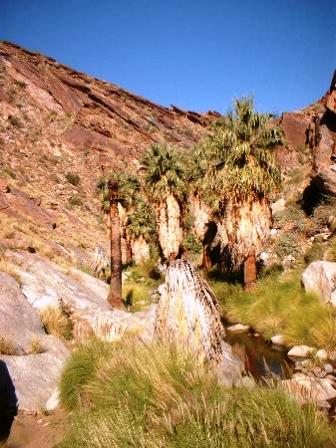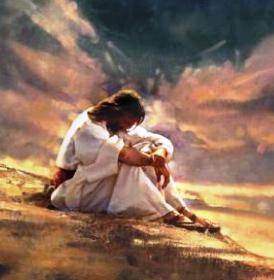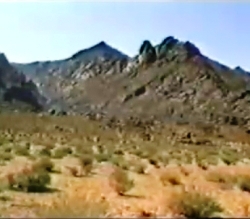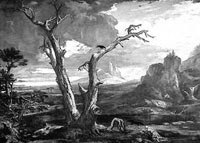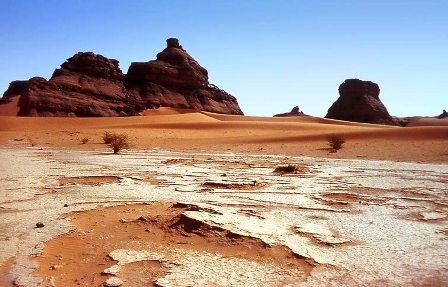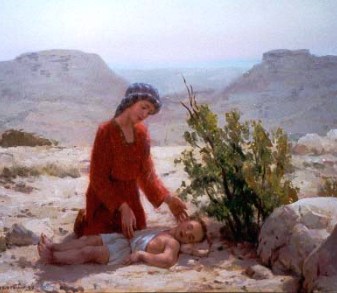JOURNEY INTO THE DESERT
That wonderful poet/priest of the seventeenth century, George Herbert, spoke of Lent as a Feast. “Welcome dear feast of Lent: who loves not thee,” he begins his poem. Most of us have been brought up to treat Lent as a time of penance and fasting. However in the Roman Catholic tradition today, unlike the Orthodox, there are only two days of fasting left : Ash Wednesday and Good Friday. When Herbert wrote his poem Lent was indeed kept properly as a fasting and penitential time. So why would he refer to it as a feast?
I think the reason is that we always associate a feast with joy and even anticipation; accordingly we anticipate Lent with joy because we know it is that gifted time to leave bad habits behind, whatever these may be and try to inculcate better ones. So if we see the first part of Lent especially as the opportunity to do the cleaning up we need in our lives then we would agree with George Herbert. We also know that we shall be able enter into the second half of Lent better prepared to journey with our Lord to Golgotha.
One theme for Lent is journeys. What does a journey suggest? One of the things it does is to conjure in our minds of wanting to make it and achieve something from it.
Our first journey is going to take us to the desert. Why? One reason is as we shall discover in listening to the Gospel next Sunday is that our Lord did it Himself.
But before pondering on the Gospel for next Sunday, in the Jewish Scripture the wilderness and desert had been important places for discovering the Lord and His way and of growth in that way. Jesus and the early followers would have known all this.
What events come to our minds? How can we relate to them in our own journey in the desert? Here are some that have come to my mind and are worth our pondering during the next week.
*Hagar in the desert of Paran – an angel strengthens and assures her of a future for her son and self when she thought life was about to ebb from her. Gen. 21.16ff.
* Moses fleeing into the Sinai desert after killing an Egyptian. As well as marrying the daughter of a Midianite priest, Jethro, he had the incredible experience of the non-consuming burning bush. Here he discovered the mystery of Yahweh. Ex. 2.11ff, 3. 2ff..
* The great number of sins committed by the Hebrews and the petitioning of Moses on behalf of his people – so that an entire generation died in the wilderness. Ex., 16.3ff, 17. 2 ff., 32. 1ff.
* The revelation of Yahweh on Mt. Sinai again shrouded in great mystery to Moses. He is a God before whom one stands in awe. Ex.19.6ff.
* The Commandments and Covenant in the desolation of Mt. Sinai. By living according to these would bring life to the Hebrew children. Ex. 20.1ff.
*Elijah in the desert of Juda and his sanctuary at Horeb (Sinai) - here, in the wilds of the sacred mountain, broken spirited, he poured out his complaints before the Lord, who strengthened him by a revelation and restored his faith. Three commands were laid upon him: to anoint Hazael to be King of Syria, Jehu to be King of Israel, and Elisha to be his own successor. On thee mountain top Elijah discovered that the Lord was not in noise and show, power and prestige, but in stillness and silence. I Kgs. 19. 11ff.
* The Maccabees and their followers fled to the wilderness to organise an army to overthrow the Hellenistic rule and restore Jewish religion. I Macc. 2. 27ff.
* The Essenes living in the desert by the Dead Sea at Qumram. They dissociated themselves from the political intrigues of the high priest now descended from the Hasmoneans and not from Aaron and the tribe of Levi. They believed their community living adhered to the old covenant. Within they had whom they considered was a proper high priest from the Zadokite line, and their Teacher instructed them on community living. In common with the Baptist, the Essenes took seriously Deutero-Isaiah’s words, “In the wilderness prepare the way of the Lord” (Isa. 40. 3), and devoted much energy towards it.
*The life and ministry of John the Baptist out in the Juda desert. He had numerous followers including Andrew and the beloved disciple. How much of this experience is reflected in the Johannine Gospel with its emphasis on contrast between darkness and light, truth and falsehood, and the teacher, the Spirit of Truth, all of which are found in the teachings at Qumran.
In the early days of Christianity the desert journey continued to be made. The first example is of course Paul who had to learn a new language, the language of Jesus Christ and not the Law. Reading between the lines in his own biographical account that desert encounter was years during which he came to know the Lord intimately who had raised him from a life of ignorance.
 The early Church has many accounts of both men and women going off into the desert to take up hermit or monk existences in order to be at one with God. They had realised that so much of their living had become extra baggage, and living according to Christ was meant to be simple.
The early Church has many accounts of both men and women going off into the desert to take up hermit or monk existences in order to be at one with God. They had realised that so much of their living had become extra baggage, and living according to Christ was meant to be simple.
 Just as the desert of the holy land attracted disciples to it, so did the vast desert of Egypt and other places. No doubt too Christians went off to the desert to escape persecution and to be left in peace. Yet some went out to live an ascetic life in order to know the Lord more intimately after escaping martyrdom. One who comes to mind in the 2nd C. is St. Thecla. As often happened in those first couple of hundred years of Christianity, when a young woman wanting to preserve her virginity for Christ refused to marry her betrothed was betrayed of her allegiance to Christ to the local Roman governor. Thecla was prepared to die for her virginity and faced the penalty of death. However she was miraculously saved from fire and beasts. After being spared by the Lord she became a hermit for the rest of her life.
Just as the desert of the holy land attracted disciples to it, so did the vast desert of Egypt and other places. No doubt too Christians went off to the desert to escape persecution and to be left in peace. Yet some went out to live an ascetic life in order to know the Lord more intimately after escaping martyrdom. One who comes to mind in the 2nd C. is St. Thecla. As often happened in those first couple of hundred years of Christianity, when a young woman wanting to preserve her virginity for Christ refused to marry her betrothed was betrayed of her allegiance to Christ to the local Roman governor. Thecla was prepared to die for her virginity and faced the penalty of death. However she was miraculously saved from fire and beasts. After being spared by the Lord she became a hermit for the rest of her life.
 Towards the end of the third century St. Anthony took the Gospel account of selling all possessions and giving to the poor seriously. After giving his riches away and also providing for his sister, he set off to the desert too and dwelt in an area known as Nitras, some 60 miles west of Alexandria, in very rugged terrain.
Towards the end of the third century St. Anthony took the Gospel account of selling all possessions and giving to the poor seriously. After giving his riches away and also providing for his sister, he set off to the desert too and dwelt in an area known as Nitras, some 60 miles west of Alexandria, in very rugged terrain.
 We know much about St. Antony through the biography written by Athanasius in gratitude for the desert Fathers and Mothers caring for him when fleeing from the wrath of the Arians in the 4th C. He related how Anthony too was tempted by the devil by afflicting him with boredom, laziness, and the phantoms of women. When he moved further out into the desert the devil again attacked him with phantoms in the form of wild beasts, wolves, lions, snakes and scorpions. They appeared as if they were about to attack him or cut him into pieces. But the saint would laugh at them scornfully and say, "If any of you have any authority over me, only one would have been sufficient to fight me." At his saying this, they disappeared as though in smoke, and God gave him the victory over the devil.
We know much about St. Antony through the biography written by Athanasius in gratitude for the desert Fathers and Mothers caring for him when fleeing from the wrath of the Arians in the 4th C. He related how Anthony too was tempted by the devil by afflicting him with boredom, laziness, and the phantoms of women. When he moved further out into the desert the devil again attacked him with phantoms in the form of wild beasts, wolves, lions, snakes and scorpions. They appeared as if they were about to attack him or cut him into pieces. But the saint would laugh at them scornfully and say, "If any of you have any authority over me, only one would have been sufficient to fight me." At his saying this, they disappeared as though in smoke, and God gave him the victory over the devil.
 After trying to make himself a martyr in the persecution against Christians in Alexandria in A.D. 311 he went to the eastern desert and travelled until he came across a spot with a spring and palm trees. Here he settled, and here still is the monastery of St. Anthony. Here too saw the rudiments of community living as he gathered around him disciples who learnt from him. Some of this learning time has been collected in what is known as The Sayings of the Desert Fathers. They grew their own food and wove mats of rushes. But more importantly the desert conditions gave them time to contemplate.
After trying to make himself a martyr in the persecution against Christians in Alexandria in A.D. 311 he went to the eastern desert and travelled until he came across a spot with a spring and palm trees. Here he settled, and here still is the monastery of St. Anthony. Here too saw the rudiments of community living as he gathered around him disciples who learnt from him. Some of this learning time has been collected in what is known as The Sayings of the Desert Fathers. They grew their own food and wove mats of rushes. But more importantly the desert conditions gave them time to contemplate.
 Another famous desert dweller of the fourth century in Egypt was Pachomius. Shortly after his baptism he went to the desert under the guidance of the elder Palamon. After ten years or so Pachomius had a vision telling him to found a community at Tabbenisi. Up until now it was mostly eremitical living in the desert but Pachomius visualised cenobitic living with its own rule. It is said that Pachomius gave all brethren the same food and attire and obedience to the rule was expected. Despite his organisational skills for his community, Pachomius also fought the demons out in the desert.
Another famous desert dweller of the fourth century in Egypt was Pachomius. Shortly after his baptism he went to the desert under the guidance of the elder Palamon. After ten years or so Pachomius had a vision telling him to found a community at Tabbenisi. Up until now it was mostly eremitical living in the desert but Pachomius visualised cenobitic living with its own rule. It is said that Pachomius gave all brethren the same food and attire and obedience to the rule was expected. Despite his organisational skills for his community, Pachomius also fought the demons out in the desert.
 Here is one example of his battle with demons. He had been gloating over his achievements as a monk in the Egyptian desert when a voice corrected him, saying, “Ask mercy for yourself.” The monk immediately threw himself to the ground and pleaded for mercy. Immediately two angels appeared accompanied by “a Young Man whose appearance cannot be described and whose head was crowned with thorns.” The angels announced, as you have asked for mercy, “behold, this is God’s mercy, the Lord of glory, Jesus Christ, the Son, Whom God sent into the world, and Whom you crucified.” This “Young Man” prophesied that Pachomius’ monastic work will give life in times of darkness not only to monks of his time but afterwards. Then the “Young Man” ascended to heaven leaving behind Him a splendid light while Pachomius marvelled about those things he had heard.
Here is one example of his battle with demons. He had been gloating over his achievements as a monk in the Egyptian desert when a voice corrected him, saying, “Ask mercy for yourself.” The monk immediately threw himself to the ground and pleaded for mercy. Immediately two angels appeared accompanied by “a Young Man whose appearance cannot be described and whose head was crowned with thorns.” The angels announced, as you have asked for mercy, “behold, this is God’s mercy, the Lord of glory, Jesus Christ, the Son, Whom God sent into the world, and Whom you crucified.” This “Young Man” prophesied that Pachomius’ monastic work will give life in times of darkness not only to monks of his time but afterwards. Then the “Young Man” ascended to heaven leaving behind Him a splendid light while Pachomius marvelled about those things he had heard.
 Another of the famous desert Fathers was blessed Macarius who also lived a long life in the fourth century. He had one piece of advice to enquirers, "If you die to the world and to yourself, you will begin to live with Christ."
Another of the famous desert Fathers was blessed Macarius who also lived a long life in the fourth century. He had one piece of advice to enquirers, "If you die to the world and to yourself, you will begin to live with Christ."
 Helen Waddell in her collection of the sayings of the desert Fathers has this example from Macarius’ life.
Helen Waddell in her collection of the sayings of the desert Fathers has this example from Macarius’ life.
 When the abbot Macarius, carrying palm leaves, was returning to his cell at dawn, the Devil met him with a keen-edged sickle, and would have struck him. And could not. And crying out to him, ‘Great,’ he said, ‘is the violence I suffer from thee, O Macarius, that when I fain would injure thee, I cannot: yet whatsoever thou dost, I do also, and more. For thou dost fast now and then, but by no food am I ever refreshed. Thou dost keep vigil; no slumber ever falls before me. But in one thing you do overmaster me, I do myself confess it.’ And when the blessed Macarius asked him what that might be, ‘It is thy humility alone,’ he said, ‘that masters me.’ He spoke, and the blessed Macarius stretched out his hands in prayer: and the evil spirit vanished into air.
When the abbot Macarius, carrying palm leaves, was returning to his cell at dawn, the Devil met him with a keen-edged sickle, and would have struck him. And could not. And crying out to him, ‘Great,’ he said, ‘is the violence I suffer from thee, O Macarius, that when I fain would injure thee, I cannot: yet whatsoever thou dost, I do also, and more. For thou dost fast now and then, but by no food am I ever refreshed. Thou dost keep vigil; no slumber ever falls before me. But in one thing you do overmaster me, I do myself confess it.’ And when the blessed Macarius asked him what that might be, ‘It is thy humility alone,’ he said, ‘that masters me.’ He spoke, and the blessed Macarius stretched out his hands in prayer: and the evil spirit vanished into air.
 The desert dwellers were discovering that there is no place where one can escape from the assaults of Satan. So the desert became a testing ground for many hermits and monks and they learnt that in many ways the Christian life was not easy in the desert either. Yet something about the solitude and silence of the sand country helped them on their pilgrimage journey against all kinds of temptations.
The desert dwellers were discovering that there is no place where one can escape from the assaults of Satan. So the desert became a testing ground for many hermits and monks and they learnt that in many ways the Christian life was not easy in the desert either. Yet something about the solitude and silence of the sand country helped them on their pilgrimage journey against all kinds of temptations.
MODERN TIMES
 Going into the desert or to a lonely spot continued to be popular throughout the centuries, and so here is one last example, closer to our century. Charles de Foucald who was beatified on 13th November, 2005 spent the later years of his life in the desert of North Africa. In one of his letters (to a Trappist preparing for ordination) he expressed the purpose for journeying into the desert.
Going into the desert or to a lonely spot continued to be popular throughout the centuries, and so here is one last example, closer to our century. Charles de Foucald who was beatified on 13th November, 2005 spent the later years of his life in the desert of North Africa. In one of his letters (to a Trappist preparing for ordination) he expressed the purpose for journeying into the desert.
You must cross the desert and dwell in it to receive the grace of God. It is here that one drives out everything that is not God. The soul needs to enter into this silent, this recollection, this forgetfulness of all created things by which God establishes his rule in it and forms within it the life of the spirit, the life of intimacy with God, the conversation of the soul with God in faith, hope and charity.
 I first came to know of this wonderful hermit through his abandonment prayer, a prayer I am sure has been said by many since his death. Modelled on our Lord’s own abandonment prayer in the Garden of Gethsemane, it is utter giving of self and will to God to do what He will. Here it is:
I first came to know of this wonderful hermit through his abandonment prayer, a prayer I am sure has been said by many since his death. Modelled on our Lord’s own abandonment prayer in the Garden of Gethsemane, it is utter giving of self and will to God to do what He will. Here it is:
Father, I abandon myself into your hands;
do with me what you will.
Whatever you may do, I thank you.
I am ready for all, I accept all.
Let only your will be done in me, and all your creatures –
I wish no more than this, O Lord. Into your hands I commend my soul;
I offer it to you with all the love of my heart,
for I love you, Lord, and so need to give myself,
to surrender myself into your hands, without reserve,
and with boundless confidence, for you are my Father. Amen
 It is indeed a very dangerous prayer to pray with all the heart and soul as it means forfeiting any desire to direct our lives. For that reason I suggest we make it our special prayer this Lent.
It is indeed a very dangerous prayer to pray with all the heart and soul as it means forfeiting any desire to direct our lives. For that reason I suggest we make it our special prayer this Lent.
 In the sand and silence of the desert Charles De Foucald discovered what it took to be a true disciple of Christ and to abandon one's self into God's loving and merciful will, but it had not always been so in his life – a life that was faithless and dissolute for many years. Like so many of the great saints he was converted. That great love for His Master soon drove him deep into the wilderness to Asekrem in North Africa in what was then Morocco. Unlike those in the very early church who ventured to the desert for solitude and solace Charles kept in contact with the world. One way was through his correspondence. Through his letters, his own writings and the prayers and meditations he composed we have learnt much about “the absolute” in the soul’s encounter with the Divine. That life manifested that the only true path to perfection is a life of complete abandonment to the Father.
In the sand and silence of the desert Charles De Foucald discovered what it took to be a true disciple of Christ and to abandon one's self into God's loving and merciful will, but it had not always been so in his life – a life that was faithless and dissolute for many years. Like so many of the great saints he was converted. That great love for His Master soon drove him deep into the wilderness to Asekrem in North Africa in what was then Morocco. Unlike those in the very early church who ventured to the desert for solitude and solace Charles kept in contact with the world. One way was through his correspondence. Through his letters, his own writings and the prayers and meditations he composed we have learnt much about “the absolute” in the soul’s encounter with the Divine. That life manifested that the only true path to perfection is a life of complete abandonment to the Father.
 One of the ways Charles learnt to abandon his life to the Lord was by spending much time before the Blessed Sacrament and simply being lost in adoration to our blessed Saviour.
One of the ways Charles learnt to abandon his life to the Lord was by spending much time before the Blessed Sacrament and simply being lost in adoration to our blessed Saviour.
 Before his unprepared death on 1st December, 1916, a victim of local religious wars, he had striven to form brotherhoods and sisterhoods for which he had written Rules. Some years after his death the Little Sisters of the Sacred Heart was founded based on the Rules he had composed for Sisters, whilst twelve years later in 1945 the Little Brothers of Jesus came into being based on his Rule for brothers.
Before his unprepared death on 1st December, 1916, a victim of local religious wars, he had striven to form brotherhoods and sisterhoods for which he had written Rules. Some years after his death the Little Sisters of the Sacred Heart was founded based on the Rules he had composed for Sisters, whilst twelve years later in 1945 the Little Brothers of Jesus came into being based on his Rule for brothers.
